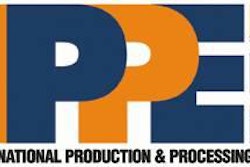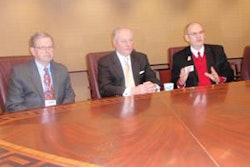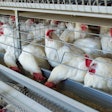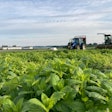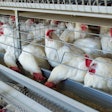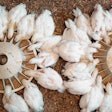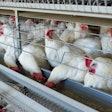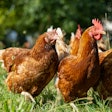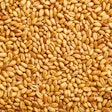It has been well documented just how important the chicken industry is to the vibrancy of the whole U.S. economy. But the industry’s growth potential, and thus its economic potential, is in gaining increased access to foreign markets.
With almost one of five pounds of U.S. chicken being exported, a robust and expanding overseas market is critically important to the economic health and future well-being of the U.S. chicken industry.
Here are updates about recent developments in Washington as they pertain to several important international markets:
Russia to take WTO seat
Members of the World Trade Organization formally approved in late 2011 Russia’s terms for membership in the organization during a three-day meeting of the WTO’s ministerial conference in Geneva. Russia will take its seat at the WTO 30 days after notifying the organization that the Russian Duma has ratified the membership terms.
For U.S. companies to benefit from Russia’s accession, it will be necessary for Congress to permanently remove Russia from the Jackson-Vanik amendment to the Trade Act of 1974 and authorize the president to extend permanent normal trade relations to Russia. Jackson-Vanik requires Russia and seven other former Soviet states and non-market economies to comply with free emigration policies before enjoying normal trade relations with the U.S. Since 1994, the U.S. has certified annually that Russia complies with the amendment’s provisions and has conferred normal trade relations status.
Russia at times in the past has used arbitrary sanitary and phytosanitary actions that lack scientific justification to limit or even halt poultry and meat imports from the U.S. Without the ability to use WTO’s dispute settlement procedures and other related mechanisms, the U.S. will be at a very significant disadvantage if Russia chooses to evoke bogus sanitary and phytosanitary measures against U.S. poultry.
National Chicken Council, along with many of our members during National Chicken Council’s “Day in Washington” in March, have been urging Congress to approve permanent normal trade relations for Russia by mid-2012 to help assure the U.S. can continue to compete in the Russian poultry market.
Seeking termination of Mexico’s WTO case
Senators Tom Carper (D-Del.), Saxby Chambliss (R-Ga.) and Mark Pryor (D-Ark.) headed an effort in the U.S. Senate, supported by industry and more than a dozen other senators, on a letter requesting that U.S. Trade Representative Ron Kirk notify his appropriate counterparts in the Mexican government that the U.S. will oppose Mexico’s request to join the Trans-Pacific Partnership trade negotiations until the Mexican government officially commits to terminating its WTO case against the unfounded and illegal charges that U.S. chicken leg quarters are exported to Mexico at price levels in violation of WTO trade rules.
India: Vast potential market for U.S. poultry
Kirk in March announced that the U.S. will initiate dispute settlement proceedings against India before the WTO to challenge its longstanding prohibition on the import of U.S. poultry. National Chicken Council and other poultry groups hailed the move, which is, as of print, still in the consultation request phase.
Since at least 1999, India has used a variety of tariff and non-tariff trade barriers to deny access of U.S. poultry to the Indian market. Although international health standards, in particular those of the World Organization for Animal Health, OIE, identify only highly pathogenic strains of avian influenza as warranting trade restrictions, India has long ignored those international norms and has banned poultry imports from the U.S. or any country that reports any incident of avian influenza, even cases of low pathogenicity. This is a protectionist policy that is inconsistent with accepted international standards and has no health or safety justification. This policy is particularly problematic in the case of the U.S., which is the most efficient poultry producer in the world and the world’s leading exporter of poultry products.
In separate letters to Kirk on the issue, a large, bipartisan group of members from both the House and Senate, supported by industry, expressed their desire to resolve these longstanding, non-scientifically based Indian policies that prevent fair trade.
National Chicken Council estimates that if India’s trade barriers were eliminated, the value of U.S. poultry exports to India each year would surpass $300 million.
The future prosperity, growth and sustainability of America’s poultry sector is invariably linked to the success we have in expanding our markets abroad, and invariably linked to policy decisions on trade that emanate from Washington. National Chicken Council will continue to engage Congress and the administration on these issues and efforts to ensure the continued growth of our industry.



